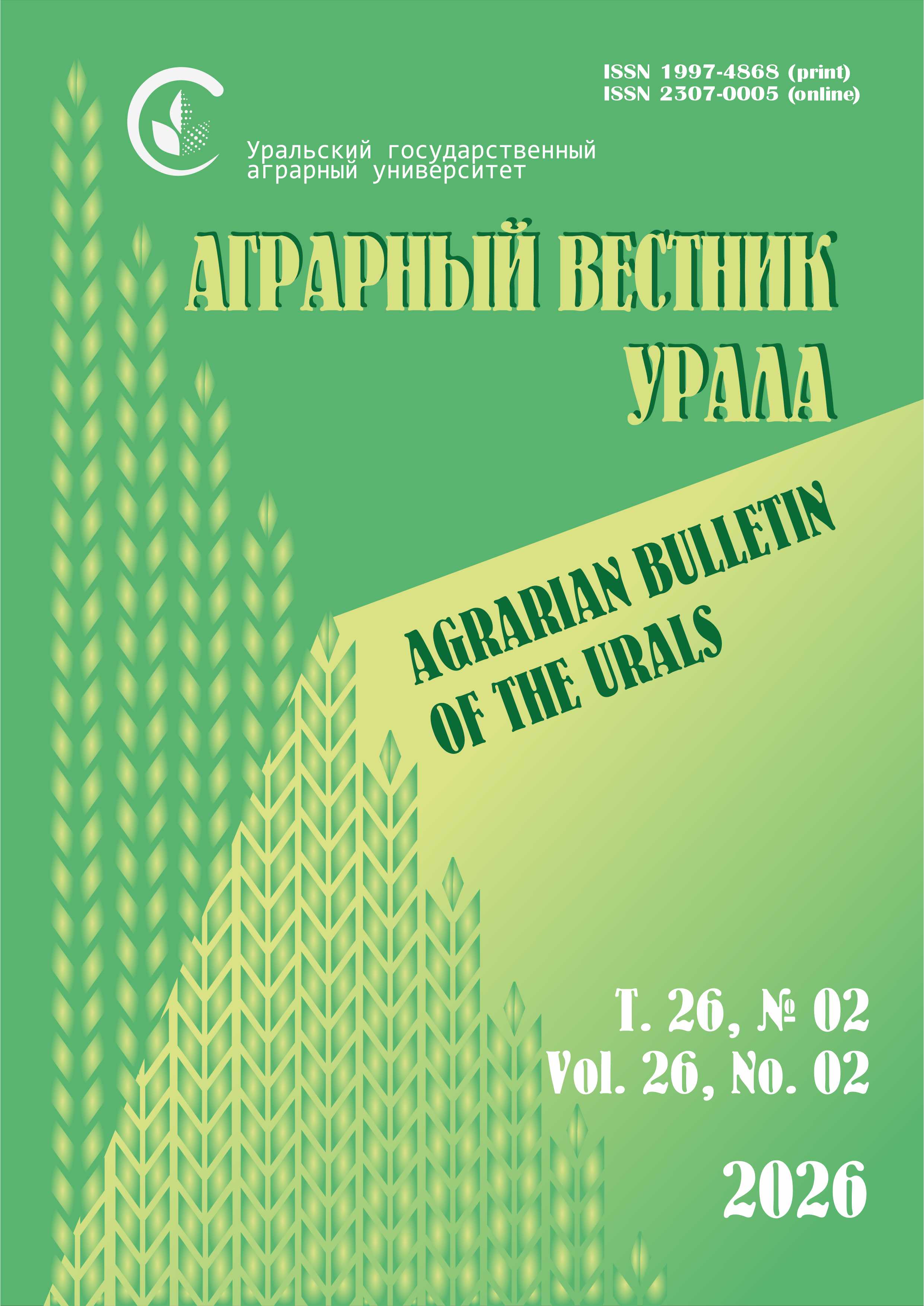I. V. Mogilevskaya
Federal Scientific Centre of Agroecology, Complex Melioration and Protective Afforestation of the Russian Academy of Sciences, Volgograd, Russia
E-mail: This email address is being protected from spambots. You need JavaScript enabled to view it.
Volume 25 No. 7
Date of paper submission: 06.03.2025, date of review: 12.04.2025, date of acceptance: 22.05.2025.
Published: 07/31/2025
Abstract. The purposeis to evaluate the possibility of using carbonizate from excess active biological wastewater treatment plants for in vitro plant cultivation as an analogue of activated carbon. Methods. The cultivation of explants of interspecific hybrids Populus F1 for 6 weeks was carried out with standard biotechnological methods. Cultivation was carried out under strictly controlled conditions in the climatic chamber Ve Farm Clima 2: temperature 25 ± 0.2 °C, light intensity 40 μmol m⁻² s⁻¹, photoperiod duration 16/8 hours, and spectral ratio of red (R), blue (B), and green (G) components of R : B : G = 2.5 : 1.0 : 0.4 for effective rhizogenesis. To determine the total chlorophyll content in the leaf plates of explants, the optical method was used. Scientific novelty. For the first time, an assessment of the possibility of applying an analogue of activated carbon – carbonizate – for the cultivation of in vitro Populus F1 hybrids obtained by low-temperature pyrolysis at 500 °C. Results. A wide range of morphometric indicators of shoots and leaf plates of the objects studied was determined, and the main indicator of the photosynthetic apparatus’ work was the total chlorophyll content. The efficiency of the studied sorbent as an analogue of activated carbon was confirmed. The obtained data at MS medium with the Murashige and Skoog protocol and the addition of carbonizate at a concentration of 2.5 g L⁻¹ in the root length, the percentage of rooted shoots, and the shoot dry mass differ significantly from the data with the addition of activated carbon in the same concentration. Carbonizate from the waste of biological cleaning – excessive active silt – was obtained without an additional high-temperature stage, which significantly reduces the process of obtaining sorbent and makes it effective in the technology of woody plants’ tissue culture. The lack of statistical differences in the shoot length, the sizes of leaf plates, and the leaf index regarding the results obtained in the control medium confirms the safety of the product’s use for the micropropagation.
Keywords: Populus hybrids, in vitro, carbonizate, activated carbon, morphogenesis, micropropagation
Acknowledgements. The study was performed within the framework of the State Assignment of the Federal Scientific Center of Agroecology, Integrated Land Reclamation and Protective Forestry of the Russian Academy of Sciences (No. 125021402244-3 “Study of the main pathways of morphogenesis in vitro and factors of abiotic and biotic nature regulating the processes of regeneration of woody-shrub and cultivated plants”). The authors would like to thank the Laboratory of Breeding, Seed Production and Nursery Production of the Federal Research Center of Agroecology of the Russian Academy of Sciences.
For citation: Mogilevskaya I. V. Possibilities of using carbonizate from excess activated sludge for in vitro cultivation of Populus L. hybrids. Agrarian Bulletin of the Urals. 2025; 25 (07): 1085‒1094. https://doi.org/10.32417/1997-4868-2025-25-07-1085-1094 (In Russ.)
Download the full text of the article












